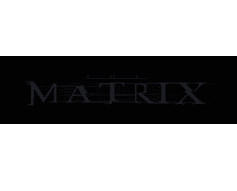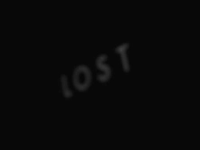Networks: Friends, Money, and Bytes
Mung Chiang
A course driven by 20 practical questions about wireless, web, and the Internet, about how products from companies like Apple, Google, Facebook, Netflix, Amazon, Ericsson, HP, Skype and AT&T work.Sign Up
Next session: 17 September 2012 (10 weeks long)
Workload: 8 hours/week
About the Course
You pick up your iPhone while waiting in line at a coffee shop. You google a not-so-famous actor, get linked to a Wikipedia entry listing his recent movies and popular YouTube clips of several of them. You check out user reviews on Amazon and pick one, download that movie on BitTorrent or stream that in Netflix. But suddenly the WiFi logo on your phone is gone and you're on 3G. Video quality starts to degrade, but you don't know if it's the server getting crowded or the Internet is congested somewhere. In any case, it costs you $10 per Gigabyte, and you decide to stop watching the movie, and instead multitask between sending tweets and calling your friend on Skype, while songs stream from iCloud to your phone. You're happy with the call quality, but get a little irritated when you see there're no new followers on Twitter. You may wonder how they all kind of work, and why sometimes they don't. Take a look at the list of 20 questions below. Each question is selected not just for its relevance to our daily lives, but also for the core concepts in the field of networking illustrated by its answers. This course is about formulating and answering these 20 questions.
New feature: This course will launch the Grand Challenge Homework (GCH) program. Throughout the course, there will be about 10 open-ended, project-like challenges (in social and technological network engineering) provided to all the enrolled students. Associated with GCH is a Industry and Investor Partners (IIP) program. About 10 leading US companies and venture capitalists in the networking industry have agreed to screen the finalists selected by the teaching staff, and then explore opportunities with the selected students to turn their ideas and prototypes into new products and companies. You pour your creativity and energy in this course, we will help create career-changing opportunities for you. The IIP companies associated with this course range from the world-renowned Bell Labs to a startup founded by the father of DSL, and from Silicon Valley VC's like USVP to university-spinoff specialist firms like Osage Partners.
New feature: This course will launch the Grand Challenge Homework (GCH) program. Throughout the course, there will be about 10 open-ended, project-like challenges (in social and technological network engineering) provided to all the enrolled students. Associated with GCH is a Industry and Investor Partners (IIP) program. About 10 leading US companies and venture capitalists in the networking industry have agreed to screen the finalists selected by the teaching staff, and then explore opportunities with the selected students to turn their ideas and prototypes into new products and companies. You pour your creativity and energy in this course, we will help create career-changing opportunities for you. The IIP companies associated with this course range from the world-renowned Bell Labs to a startup founded by the father of DSL, and from Silicon Valley VC's like USVP to university-spinoff specialist firms like Osage Partners.
About the Instructor(s)

Course Syllabus
- What makes CDMA work for my smartphone?
- How does Google sell its ad spaces?
- How does Google rank webpages?
- How does Netflix recommend movies?
- When can I trust an average rating on Amazon?
- Why does Wikipedia even work?
- How do I viralize a YouTube video and tip a Groupon deal?
- How do I influence people on Facebook and Twitter?
- Can I really reach anyone in 6 steps?
- Does the Internet have an Achilles' heel?
- Why do AT&T and Verizon Wireless charge me $10 a GB?
- How can I pay less for my Internet connection?
- How does traffic get through the Internet?
- Why doesn't the Internet collapse under congestion?
- How can Skype and BitTorrent be free?
- What's inside the cloud of iCloud?
- IPTV andNetflix: how can the Internet support video?
- Why is WiFi faster at home than at a hotspot?
- Why am I only getting a few percent of advertised 4G speed?
- Is it really fair that my neighbor's iPad downloads faster?
Recommended Background
Basic linear algebra and multivariable calculus. However, if you don't have these prerequisites, you can still sign up now, and in September the instructor will see if part of the course material can be presented without requiring this mathematical background.
Suggested Readings
M. Chiang, Networked Life: 20 Questions and Answers , Cambridge University Press, August 2012. (Available by September 1, 2012).
, Cambridge University Press, August 2012. (Available by September 1, 2012).
Course Format
2 lectures per week, each lecture about 75 minutes, formulating and answering one of the 20 questions. Weekly assignment, midterm, final, blogging and wiki-creation on www.network20q.com
FAQ
- Does Princeton award credentials or reports regarding my work in this course?No certificates, statements of accomplishment, or other credentials will be awarded in connection with this course.
















































































No hay comentarios:
Publicar un comentario